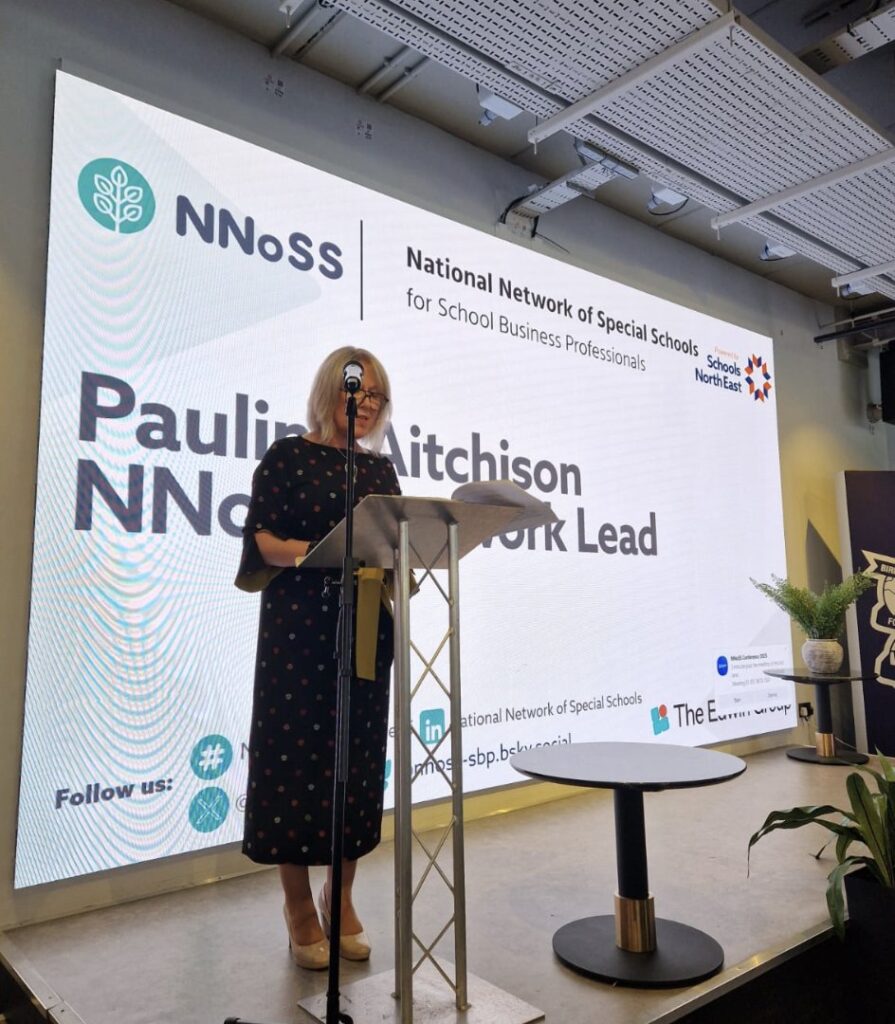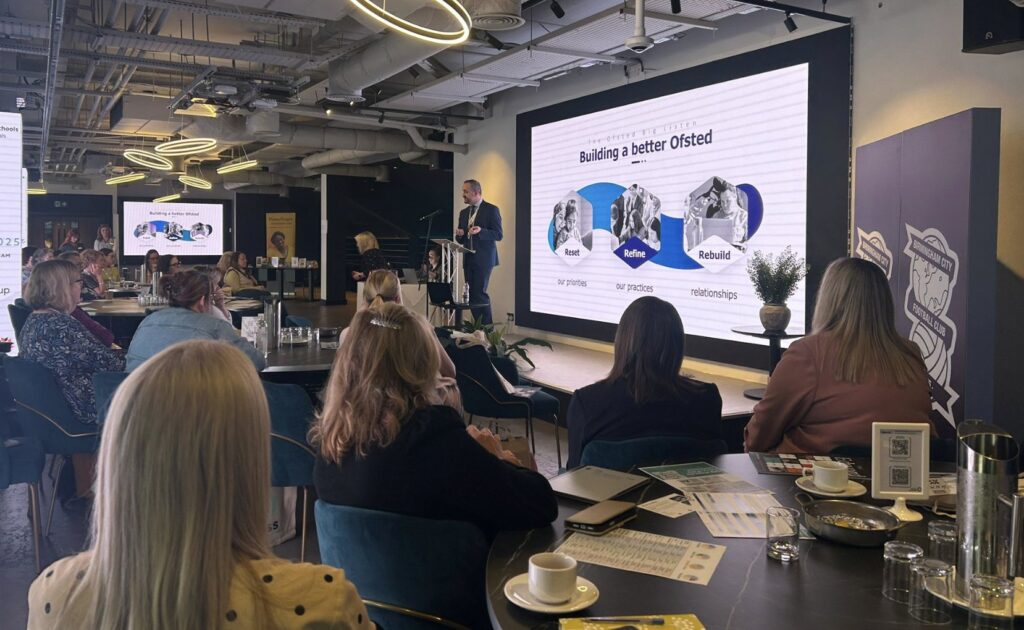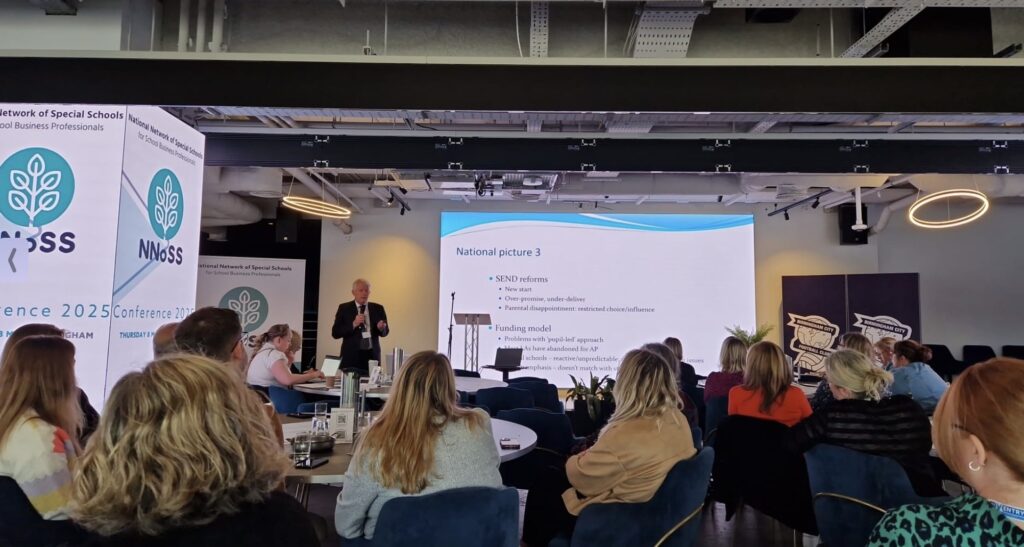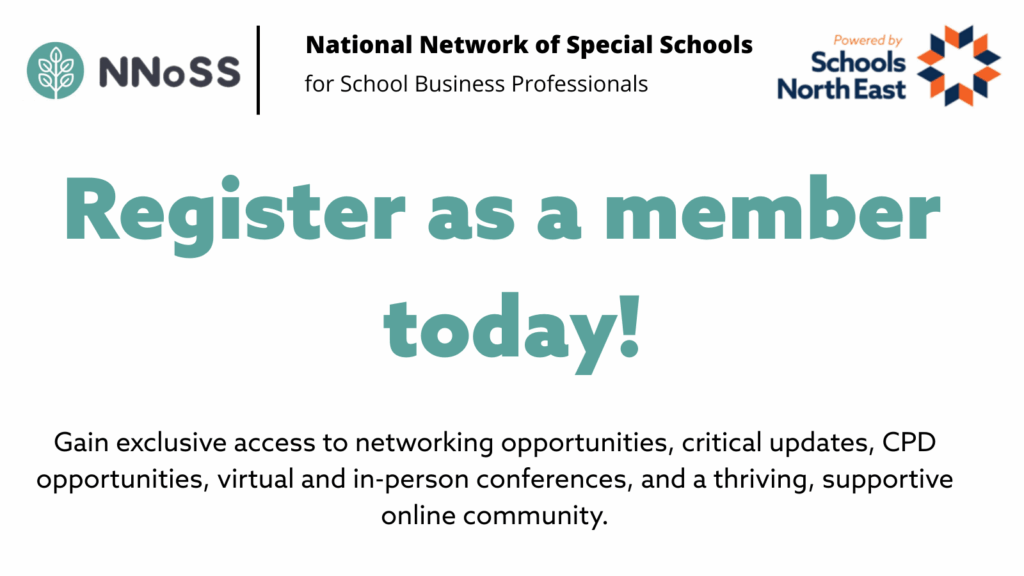NNoSS Conference 2025: Driving change together in the specialist sector
The National Network of Special Schools for School Business Professionals (NNoSS) marked another powerful milestone yesterday as delegates from across the country gathered for NNoSS Conference 2025 in Birmingham.
NNoSS, powered by Schools North East, was set up in 2020 on behalf of the Department for Education and this was the 5th annual conference. Members are a loud and powerful voice, challenging decisions and influencing decision makers for the greater good of the entire specialist sector.
As expected, NNoSS Conference 2025 was an incredibly powerful day full of collaboration, insight, and inspiration.
A growing, connected community

NNoSS Lead Pauline Aitchison opened the day with reflections on the network’s journey from its launch during the early days of the pandemic to its current status as a thriving national community.
With 30,000 more children now in special schools than when NNoSS began, she emphasised the urgency of a joined-up, strategic approach to systemic issues in the SEND system.
Ofsted and the specialist sector

Our first keynote of the day was Adam Sproston (Senior His Majesty’s Inspector, SEND and AP, Inclusive Education Team, Ofsted).
Adam unpacked how Ofsted’s renewed Education Inspection Framework is sharpening its focus on inclusion and the needs of vulnerable learners. Drawing on current thematic reviews and wider inspectorate work, Adam emphasised that Ofsted is not only evaluating but actively listening and learning from the sector.
The session tackled several persistent myths and misconceptions about Ofsted’s role, helping delegates better understand what the inspectorate can and cannot influence. Adam provided valuable clarity on Ofsted’s position within the broader education system — particularly in relation to pressing issues such as pupil attendance, children missing education, and the growing numbers in elective home education.
He also acknowledged the sector’s ongoing challenges and underlined Ofsted’s commitment to building a more informed, responsive approach to accountability. The session gave attendees a clearer picture of where the inspectorate is heading, and how school leaders can engage constructively with the evolving landscape.
Funding for special schools and alternative provision

One of the most pressing and thought-provoking sessions at this year’s NNoSS Conference came from Dr Peter Gray, Policy Consultant with the SEN Policy Research Forum, who tackled the complex and evolving issue of funding for special schools and alternative provision.
Delegates heard how the current top-up funding model can create significant unpredictability for special schools. Unlike mainstream schools, special schools face an additional pupil costs, yet place funding has remained frozen since 2013. This rigidity, coupled with budget uncertainty from delayed or inconsistent top-up payments, forces many schools to rely on temporary staffing — undermining stability and planning.
As funding pressures mount, the national SEND funding deficit has ballooned to £4 billion, prompting serious concerns about the sustainability of current models.
Dr Gray offered a historical lens, explaining how shifts under the coalition government removed the “bias towards inclusion” but failed to account for the rising number of special school placements. He noted how reforms under Gove raised academic expectations without considering the broader developmental needs of children with SEND.
Today, policy is swinging back towards mainstream inclusion and cost control, with a likely push to reduce reliance on EHCPs and expensive independent placements.
Several alternative funding models were presented:
- A school profile model, establishing average top-ups based on pupil profiles and reviewed every 3 years.
- A pathway-based model, aligning funding to educational pathways and staffing needs rather than deficits.
- A block budget approach, offering schools greater predictability and flexibility to plan proactively.
The session closed with a powerful call for greater transparency between local authorities and special schools. Speakers stressed the importance of proactive commissioning, on-the-ground understanding by SEN caseworkers, and clearly defined outreach services.
The message was clear: to build a sustainable future, we need new funding structures rooted in collaboration, predictability, and shared accountability.
Practical tools and shared learning
From AI integration to staff wellbeing, sessions throughout the day offered practical tools and thought leadership. Highlights included:
- AI and admin efficiency, led by sector peers, sharing how tools like ChatGPT can streamline communication and free up time for pupil-focused work.
- Menopause in the workplace, with Julie Liddell encouraging inclusive, supportive environments.
Climate action planning and risk management in SEND, offering clarity on leading safer, more sustainable schools. - Insights Discovery, exploring how to communicate even more effectively with colleagues by further adapting to different communication styles and reflecting on our own communication style.
- Courageous leadership, which was an uplifting keynote encouraging and enthusing leaders so they feel empowered for the changes ahead.
Why it matters
More than a conference, The National Network of Special Schools for School Business Professionals is a movement.
In a sector where school business professionals can often feel isolated, this event is a vital space to connect, upskill, and influence national policy together. Thank you to all who joined us — and to The Edwin Group for your continued support.
Let’s keep the momentum going.
